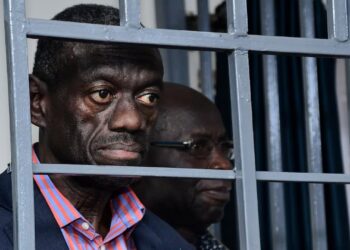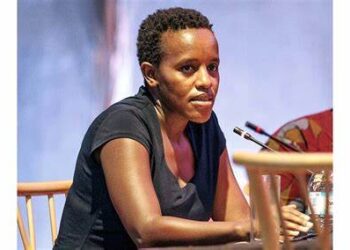By AGGREY BULUBA
In Uganda, the proverb “The longer the tree stands, the deeper its roots grow” seems to echo the experiences of many politicians who have remained in power for decades. However, as time passes, the question arises: is it time for these leaders to step aside and allow fresh voices into the political landscape, or do their decades of service still provide the country with the leadership it needs? This question is far from simple, especially when considering the resilience, adaptability, and deep connections demonstrated by the longest-serving politicians, including President Yoweri Museveni.
At the heart of Uganda’s political landscape is President Yoweri Museveni, who has ruled since 1986. His nearly four-decade tenure reflects his political acumen and the stability he has brought to the country. As the proverb goes, “A bird in the hand is worth two in the bush,” Museveni has been the leader many Ugandans have relied on during tumultuous times. His presidency has seen Uganda transition from a war-torn nation to one of East Africa’s more stable economies. However, this stability has not been without challenges, including allegations of corruption and growing public discontent with the political system. While Museveni’s leadership has brought economic opportunities and political steadiness, critics argue that “A tree that stands too long in the same place may lose its strength.” Calls for his resignation have grown louder as Uganda looks toward the future.
The longevity of Uganda’s leadership is also evident in its Parliament, where several Members of Parliament (MPs) have served for decades. Rebecca Kadaga, representing Kamuli District since 1989, is a prominent example. Her tenure has significantly influenced Uganda’s legislative framework, particularly in women’s rights and governance. However, some argue that her extended time in power has made her more of a fixture of the system than a force for change. As the saying goes, “What is good for the goose is not always good for the gander.” While Kadaga’s leadership has been impactful, critics question whether it still meets the evolving needs of her constituents.
Similarly, Jim Muhwezi, who has represented Rujumbura County since 1986, exemplifies political endurance. Despite losing his seat in 2016, he returned to Parliament in 2021, demonstrating the resilience captured by the saying, “A stubborn fly is the one that refuses to die.” Muhwezi’s extensive political history and ministerial roles highlight his enduring influence. However, as Uganda’s younger electorate demands change, questions arise about whether these long-serving politicians should step aside for a new generation. As the proverb goes, “You cannot put old wine in a new bottle,” emphasizing the need for political renewal to address emerging challenges and opportunities.
The late Cecilia Ogwal, who served as MP for Dokolo District from 1996 until her death in January 2024, was another veteran politician embodying longevity. Despite briefly losing her seat in 2006, Ogwal returned in 2011, showcasing her commitment to public service. However, like many others, her prolonged tenure also sparked debates about the need for fresh leadership.
Abdu Katuntu, serving Bugweri County since 2001, is another enduring figure in Ugandan politics. Though ousted in 2006 by the late Kirunda Kivejinja, Katuntu regained his seat in 2011, illustrating the proverb, “The eagle does not chase flies.” His resilience reflects the stronghold of long-standing political figures in Uganda. However, as the country faces new challenges, including a youth bulge and rapid societal changes, the need for innovation and fresh perspectives grows. The saying, “When the old man leaves, the young man will rise,” underscores the urgency for generational change.
Betty Amongi, representing Oyam South since 2001, symbolizes political endurance. Her advocacy for anti-corruption and development issues has made her a prominent figure. As the proverb goes, “The patient dog eats the fattest bone,” illustrating her ability to maintain influence amidst shifting political landscapes. Yet, Uganda’s rapidly changing society suggests that “Too much of anything is bad.” Long-serving leaders may lose touch with the evolving priorities of their constituents, highlighting the need for new leadership.
The political careers of figures like Felix Okot Ogong and Gen. Kahinda Otafiire further raise questions about Uganda’s political future. While these politicians have deep roots in their communities, the proverb “Does the tree bear the same fruit after so many seasons?” encapsulates the dilemma facing the country. Uganda’s young and dynamic population increasingly calls for leaders who reflect their aspirations and address contemporary challenges.
In conclusion, the debate about political longevity in Uganda reflects broader national challenges. As the saying goes, “The old woman’s skin may be thick, but she cannot carry the load forever.” While the experience and contributions of leaders like Museveni, Kadaga, and others are undeniable, Uganda’s future depends on creating space for new leadership. The tree that has stood for so long must eventually yield to new growth to ensure the country continues to progress and embrace a bright, inclusive future. Whether Uganda’s political tree will bend to the winds of change or remain steadfast, only time will tell.







Discussion about this post